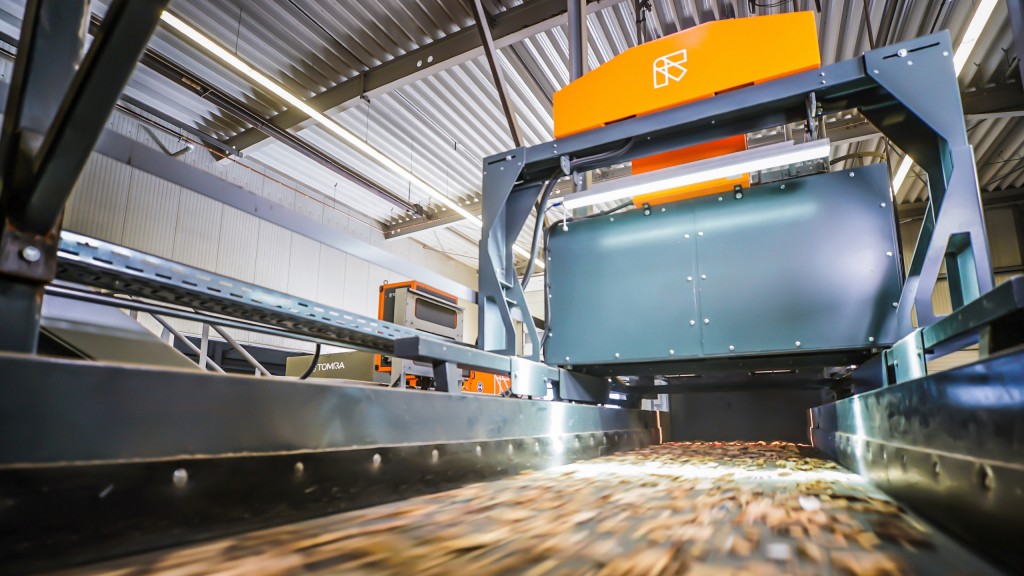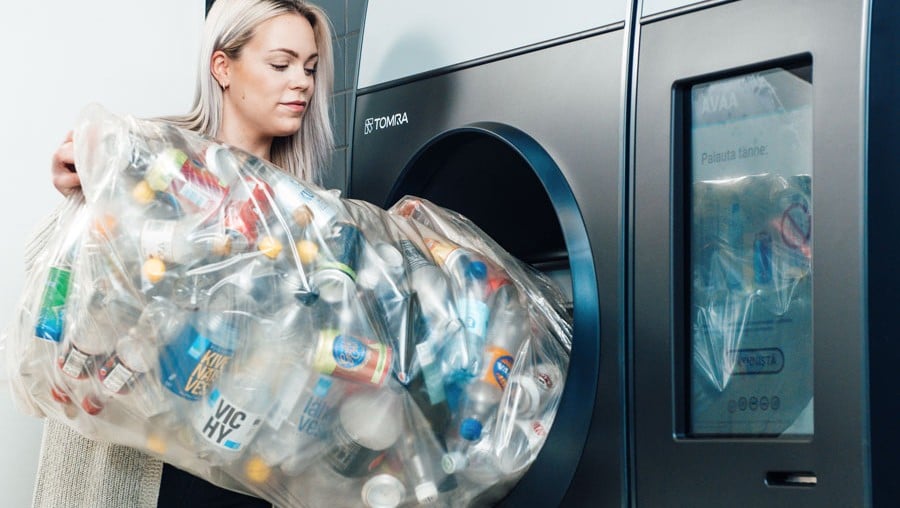
TOMRA has recognized that there is more to be done in closing the loop on PET beverage containers and other materials. Now political framework, decisions, and smart investments in collecting, sorting, and recycling should be used to improve circularity across all material streams and to overcome supply chain bottlenecks.
"We have an obligation to work with all stakeholders to reduce the mountains of waste and transform them into the valuable resources they are," TOMRA's CEO and President Tove Andersen stated at TOMRA's press conference held at IFAT.
Although there has been considerable progress in recycling, the pandemic and the ongoing war in Europe have shown us that there is an urgency to decrease dependency on primary materials.
"Today, we invest approximately 10 percent of our revenues in future-oriented activities to increase resource efficiency, advancing the market for circular solutions, which we are well-positioned to do. We have the technology capable of maximizing collection and recovery rates. We can act now, optimize waste management practices, and fill existing gaps," concludes Andersen.
Having established benchmarks for climate policy worldwide, the European Green Deal, coupled with binding regulations and guidelines for producers and manufacturers, drives the acceleration to a circular economy. TOMRA urges all participants in the value chain to see these specifications as an opportunity and to support their implementation.
"We have learned that mandatory legislation is necessary in order to achieve goals and create markets," Dr. Volker Rehrmann, EVP, Head of Recycling/Mining & Circular Economy, explains. "However, before we can recycle larger volumes we need to collect as much as possible. There are well-functioning collection systems in place, but it is still not enough. Every day we lose valuable resources to landfill and incineration where they are buried and burned. This is low-hanging fruit and the material must be collected, recovered and recycled."
Maximizing material circularity is not restricted to plastics. There are more material streams to close the loop on, such as metals and wood.
"We must pay equal attention to these recyclables to support reaching the EU's climate neutrality goals set for 2050," said Tom Eng, SVP Head of Recycling.
For example, the demand for aluminum is expected to grow by 40 percent by 2050, a challenge for aluminum producers with limited production capacities in Europe. The good news is that recycled aluminum plays a critical role on the way to a decarbonized world and supports producers' quest to increase recycled content and their environmental commitments. A similar scenario can be observed in the wood sector. Particleboard manufacturers are looking for a cost-effective and environmentally friendly way to source materials of which availability is currently limited and that with sky-rocketing prices. Using recycled materials in the production of wood-based or metal-based materials helps producers to overcome these challenges while reducing greenhouse gas emissions, and resource depletion.
"If we leverage the power of intelligent technologies and closely work with the industry, we can turn waste into value and reduce the dependency on primary materials. Recycling is a key climate mitigator and energy-efficient route to go when supporting a sustainable transition, keeping materials in continuous use. Whatever it takes to close the loop, we will get there," finishes Eng.
Company info
TOMRA of North America - 4820 Holtz Dr.
Wixom, MI
US, 48393
Website:
tomra.com/en/collection



